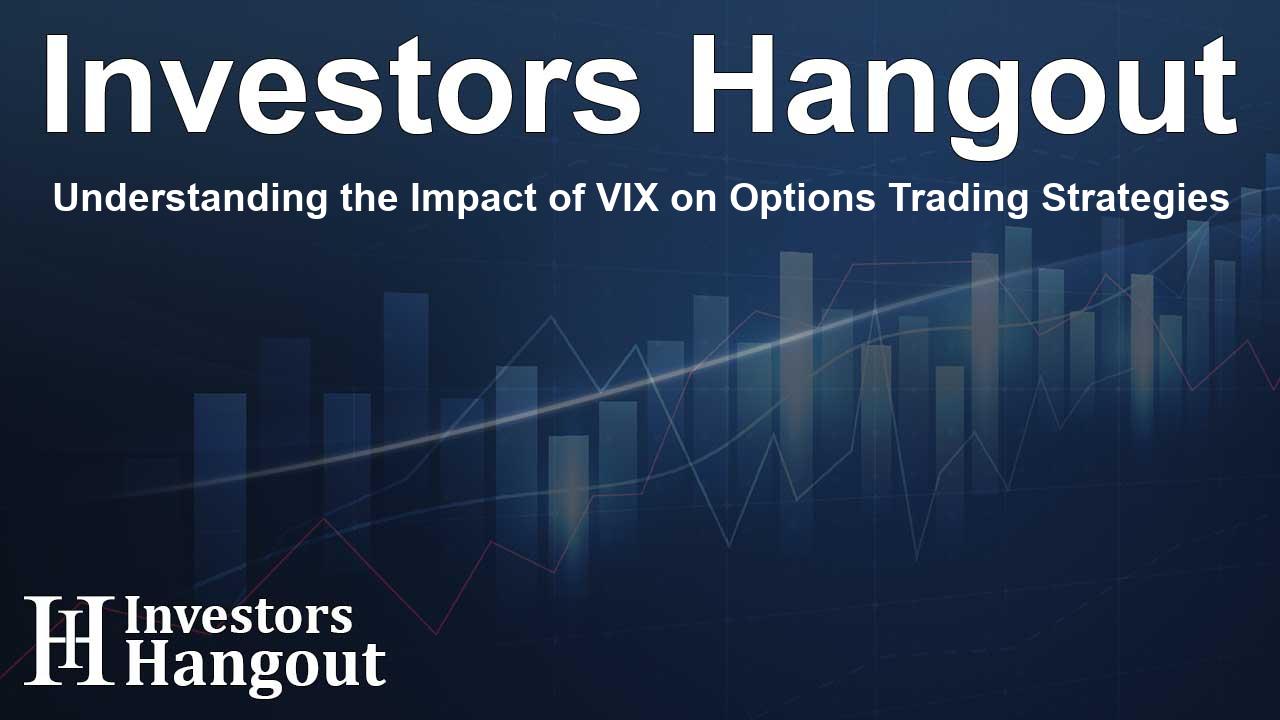Understanding the Impact of VIX on Options Trading Strategies

Understanding the VIX Index and Its Importance
The CBOE Volatility Index, or VIX for short, acts as a key indicator of market sentiment. Often referred to as the 'Fear Index,’ the VIX lets investors measure expected volatility over the coming month, specifically through S&P 500 index options. Traders use VIX futures—contracts that predict future VIX values—to engage in various volatility trading strategies. This creates a platform for traders to express diverse opinions on market trends and potential shifts in volatility.
The Importance of VIX Futures in Market Sentiment
VIX futures are essential for providing insights into how the market behaves. They reflect the positions that traders are taking based on their predictions about volatility. When the market is feeling stressed, VIX futures often rise, signaling future increases in volatility. On the other hand, in more stable conditions, these prices typically fall.
Understanding Index Options and Their Response to Implied Volatility
Index options allow traders to position themselves based on their expectations of market movements, without the obligation to own the underlying assets directly. The pricing of these options is determined by various factors, including the performance of the underlying index and the implied volatility in the market. Implied volatility serves as a measure of future price movements, making it vital for setting option premiums.
The Connection Between VIX Futures and Implied Volatility
The link between VIX futures and implied volatility plays a significant role in the pricing of options. When VIX futures are on the rise, it usually indicates greater implied volatility for index options, which can lead to increased option premiums. Conversely, if VIX futures fall, it suggests a calmer market, resulting in lower premiums for index options.
Trading Strategies Based on VIX Data
By understanding the relationship between VIX futures and implied volatility, investors can develop a variety of trading strategies. These can include volatility arbitrage, which takes advantage of differences between the implied volatility in options pricing and the actual historical volatility, as well as hedging strategies to safeguard portfolios during uncertain market conditions.
Exploring Volatility Arbitrage
Volatility arbitrage capitalizes on the differences between the implied volatility reflected in options pricing and their actual historical volatility. Traders who use this strategy look for opportunities where they can benefit from market mispricings, allowing them to take better positions based on their expectations for market movements.
Hedging to Manage Portfolio Risks
Employing VIX futures as a hedging mechanism can help investors shield their portfolios from possible losses during periods of market volatility. An increase in VIX futures during market stress can help offset losses from equity investments. This allows investors to manage their risk more effectively while staying aligned with their investment objectives.
Using VIX for Better Wealth Management
The VIX index and its associated futures are vital tools for investors who want to assess market sentiment and manage risk effectively. By understanding how VIX futures can impact implied volatility, traders can refine their risk management strategies, make informed decisions, and create robust trading plans.
Frequently Asked Questions
What is the VIX index?
The VIX index tracks how the market expects volatility to behave in the near term, based on S&P 500 index options, reflecting general market sentiment.
How do VIX futures relate to implied volatility?
VIX futures prices show what the market expects for future volatility, which in turn affects the implied volatility of index options and their premiums.
What strategies can traders use with VIX data?
Traders can use strategies like volatility arbitrage and hedging to benefit from differences in volatility predictions and protect their investments.
How does implied volatility influence option premiums?
Typically, higher implied volatility leads to higher option premiums, whereas lower implied volatility results in lower premiums for index options.
Why is it crucial for traders to understand the VIX?
Grasping the VIX helps traders assess market sentiment, craft informed trading strategies, and effectively manage risk in their investment portfolios.
About The Author
Contact Caleb Price privately here. Or send an email with ATTN: Caleb Price as the subject to contact@investorshangout.com.
About Investors Hangout
Investors Hangout is a leading online stock forum for financial discussion and learning, offering a wide range of free tools and resources. It draws in traders of all levels, who exchange market knowledge, investigate trading tactics, and keep an eye on industry developments in real time. Featuring financial articles, stock message boards, quotes, charts, company profiles, and live news updates. Through cooperative learning and a wealth of informational resources, it helps users from novices creating their first portfolios to experts honing their techniques. Join Investors Hangout today: https://investorshangout.com/
The content of this article is based on factual, publicly available information and does not represent legal, financial, or investment advice. Investors Hangout does not offer financial advice, and the author is not a licensed financial advisor. Consult a qualified advisor before making any financial or investment decisions based on this article. This article should not be considered advice to purchase, sell, or hold any securities or other investments. If any of the material provided here is inaccurate, please contact us for corrections.
